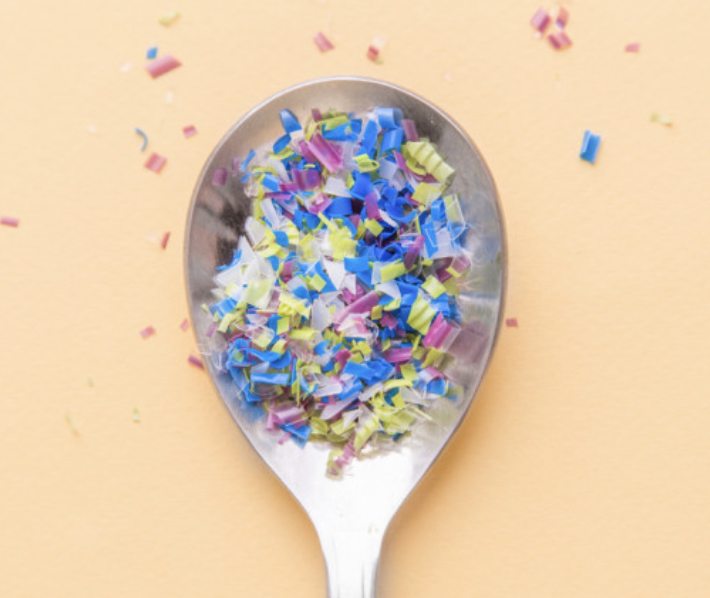
The billions upon billions of items of plastic waste choking our oceans, lakes, and rivers and piling up on land is more than unsightly and harmful to plants and wildlife. Plastic Pollution is a very real and growing threat to human health.
When plastics break down due to exposure to water, sun or other elements they can break into tiny pieces -so tiny, most of them cannot be seen with the naked eye. These small plastic fragments are now everywhere. When you drink water, eat fish or other seafood, or when you add salt to your meals, chances are you can also be ingesting tiny pieces of plastic. Those particles -called microplastics- are a contaminant which is now present in the oceans, water ways, the soil and even in the food that we eat. Once plastic enters the bloodstream of an organism it will never be processed out. The plastic, and the toxins it has absorbed will bioaccumulate as they travel up the food chain to a top predator, often a human.
MICROPLASTICS AND HEALTH
Plastic pollution is not only damaging the health of our planet. After decades of producing trillions of oil-based plastic items, the discovered negative consequences to human health are startling. Many plastics contain phthalates (DEHP) and the chemical bisphenol-A (BPA), now recognized as a hazard to public health and the human body. Both chemicals are potentially harmful to human hormones and reproductive systems. In fact, many correlations have been shown between levels of some of these chemicals, and an increased risk of the following health problems.
- Chromosomal and reproductive system abnormalities
- Adult-onset diabetes
- Impaired brain and neurological functions
- Early puberty Cancer
- Obesity
- Cardiovascular system damage
- Resistance to chemotherapy
WHAT CAN YOU DO?
- Prevent the creation of microplastics by being careful not to toss plastic products in water ways, beaches or open spaces.
- Pick up trash -especially plastics- whenever you see it, especially in ponds, streams, rivers, beaches, when possible.
- Participate in organized clean-up activities as much as you can.
- Look up products on the Internet and choose not to buy products containing microbeads. Choose products that have natural exfoliators instead.
- Consider changing the way you wash your clothing to reduce the number of microfibers that are released. There are also bags and other devices you can use in your washing machine to collect the fibers.
- Consider purchasing items made of natural fibers, when possible.
- Do not wash off lint from your dryer down the drain. Dispose of it on the trash.


